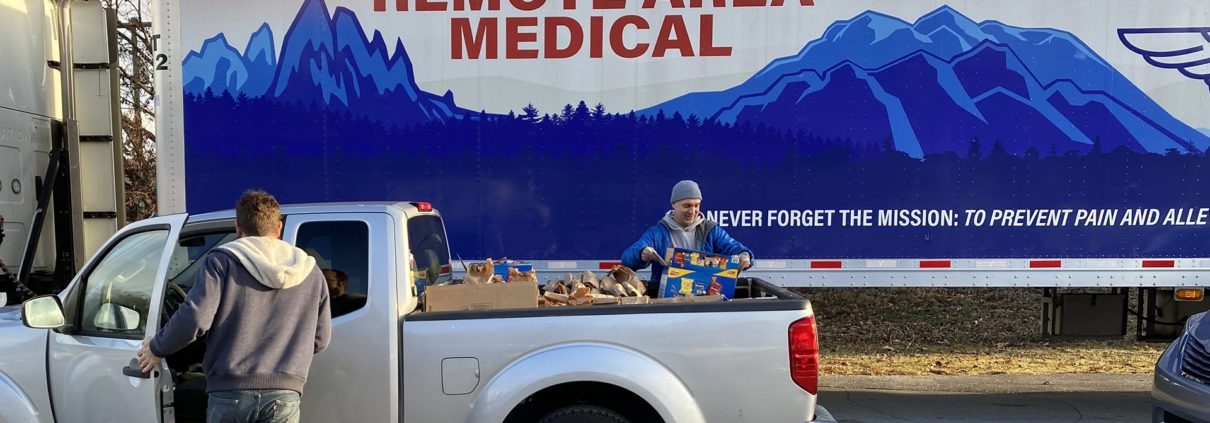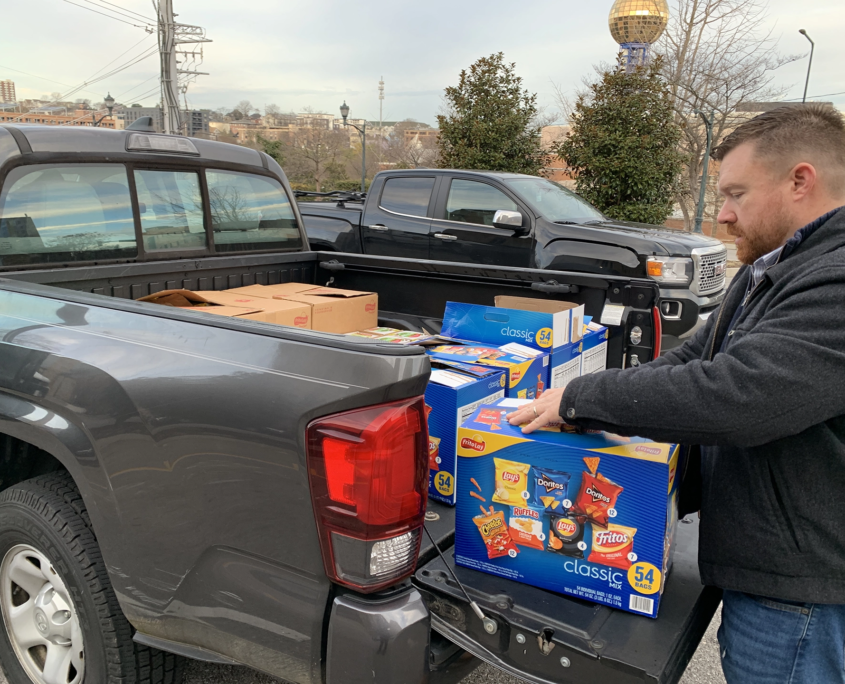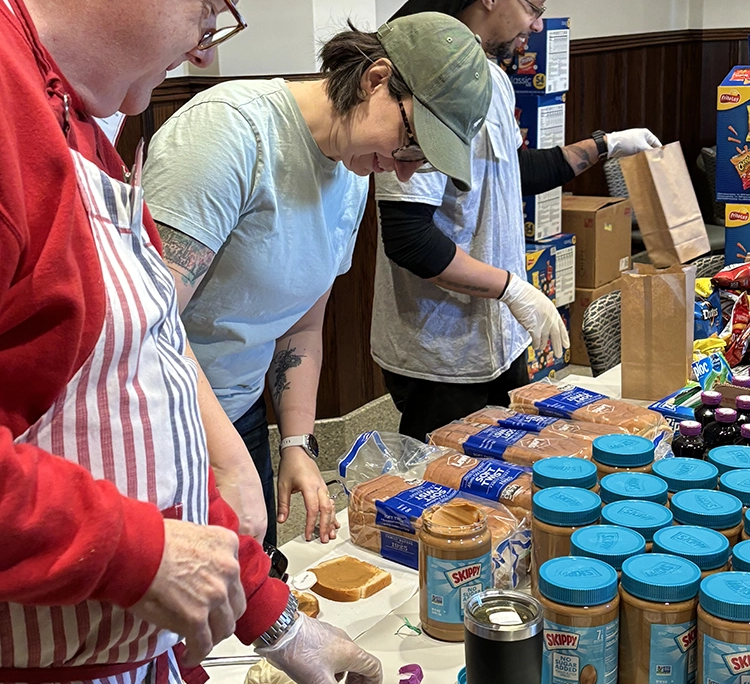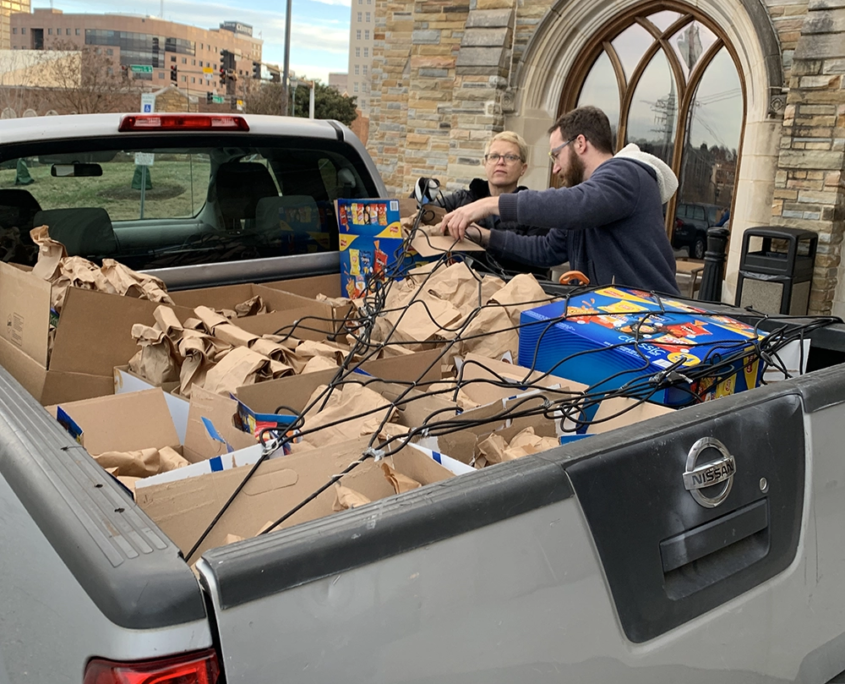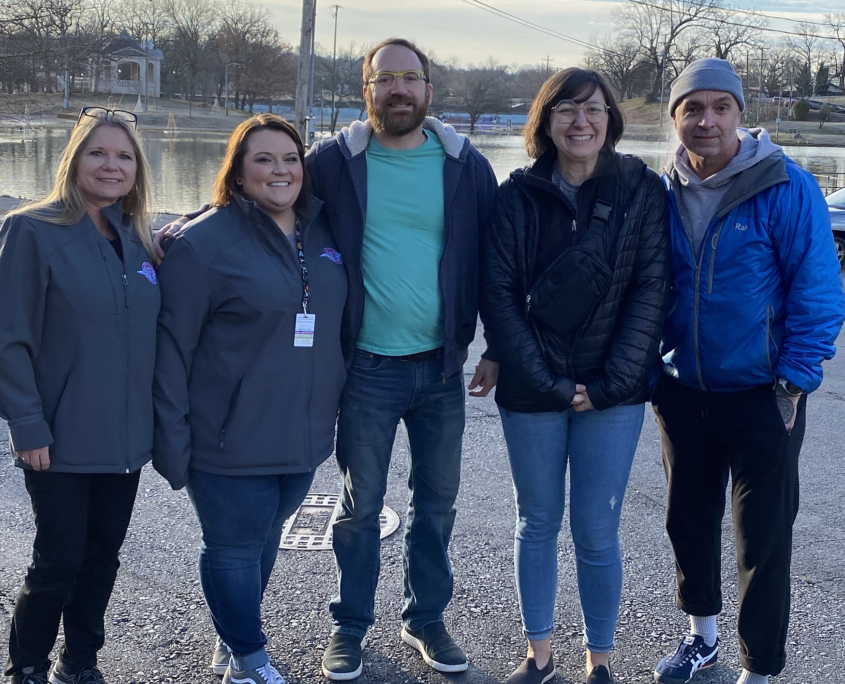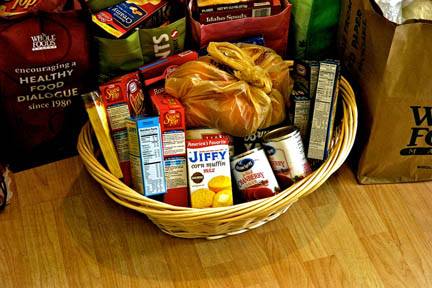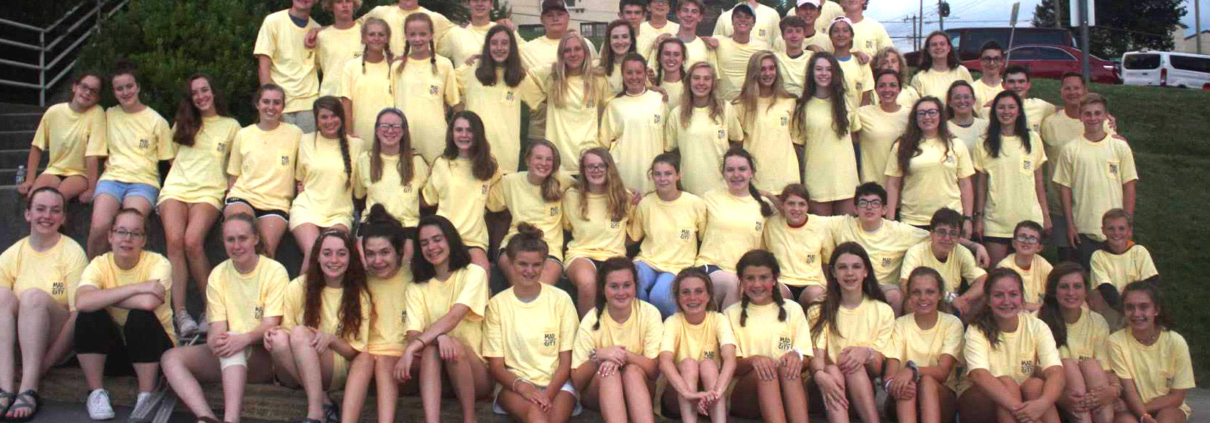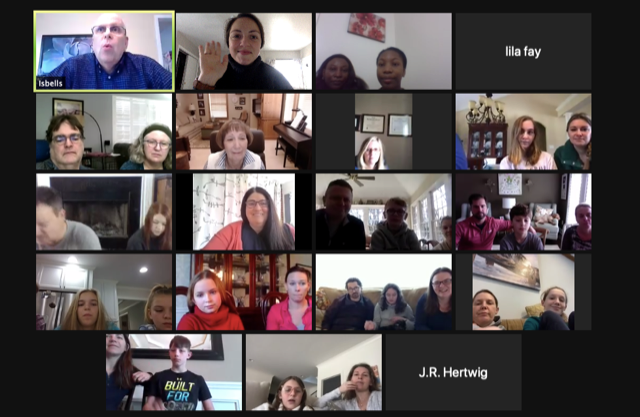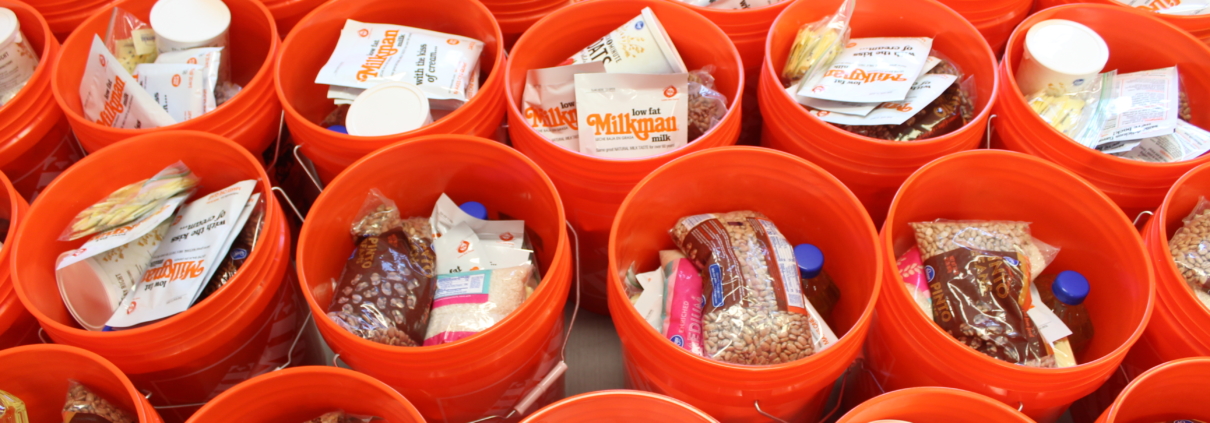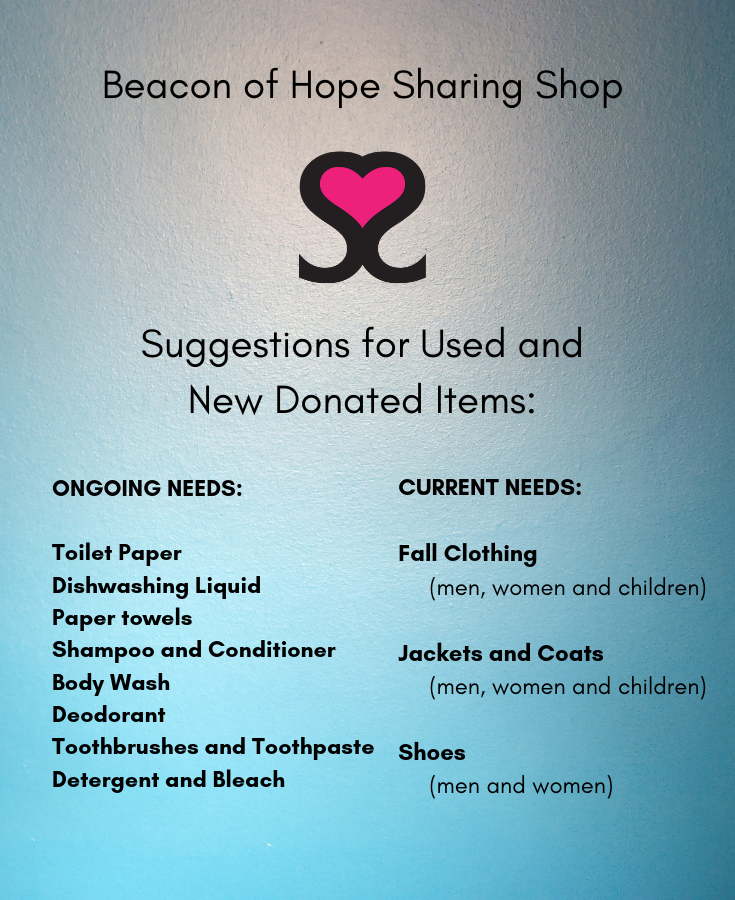When you hear of the Congregational Care Committee, it’s easy to imagine what their day-to-day looks like: caring for the congregation.
But, during the last year of the COVID-19 pandemic, the care provided by the committee has reached new lengths.
This is the first year of recollection that the committee has been chaired by two members — Barry Christmas and Judy Grubb — and the pair share responsibilities with 16 other church members. Most members serve three years on the committee, but it’s not unusual for a member to stick around for an additional year or two. This is the fourth year for Grubb.
“It is a committee that a lot of people, they’ve heard of, but they don’t really know what the committee does and how far-reaching it is,” Grubb says. “I feel like it’s really important work that is done because we’re trying to maintain communication and to care about church members.
An active, hands-on church committee, Christmas, Grubb and the additional members take a very organized and detailed approach to reaching every member of the church in one way or another.
“I love the work that we do because I know that it is touching people’s lives in a very meaningful way. It means a great deal to a lot of these people,” Christmas says. We get a blessing out of it, too. We are definitely blessed by the work.”
Care Connect Ministry
The first responsibility of the Congregational Care Committee is the Care Connect Ministry. Each member selects their desired number of contacts off the contact list of 62 homebound members and members living in a care facility.
Prior to the pandemic, members were encouraged to visit each contact at least once a month, sending cards and reaching out via phone call on occasion in between each visit. Now, members rely on cards and phone calls to connect with these congregation members, and it’s been encouraged to reach out more than ever before.
“That contact is very important. It’s easy to fall into depression and be despondent and pull away from social interaction,” Christmas says. “As I tell the committee, these people can’t get too much love, so pour the love on.”
And the contact made is not just important to the member. Grubb, who has had the same contacts for the past four years, has begun receiving cards in return and always receives phone calls thanking her for her kind words.
During the shutdown, Grubb has unfortunately lost one of her contacts, but before she died, her daughter passed along how much her mother appreciated the cards. Following her passing, Grubb sent a card to the daughter, and the daughter responded with a note saying the continued connection to the church meant more to her mom than she could have known.
“That really makes you feel like you’re doing something good,” Grubb says.
Advent and Lenten Devotionals
The devotions distributed each Advent and Lenten season are the work of the Congregational Care team, as well. In a typical year, devotions were only printed and distributed at the church, and mailed to congregation members who needed it.
Now, with the help of the Communications team, Advent and Lenten devotions were delivered to members virtually through the Church Street website, email and social media. Anyone who still needed a printed copy could receive one via request.
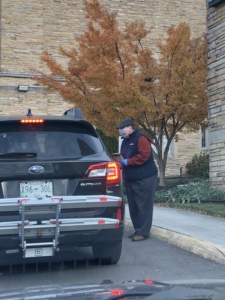
Barry Christmas shares advent devotions with community members picking up UMW Bake Sale items in November 2020.
Any devotionals mailed during the Advent season were sent by Christmas, and each person on the Care Connect Ministry contact list received a wooden cross and special Christmas letter. Christmas had the help of church staff members Doris Lively and Nancy Keen for the Lenten devotionals, and the pair sent to the Care Connect Ministry contact list a devotional and special Easter letter.
“We’re learning how to do new and different things and calling on new people outside of our committee to help us keep our projects going,” Christmas says. “They’re so meaningful to all of our congregation.”
In addition to a change in distribution, the way in which devotion writers were recruited changed. During Advent, congregation members dedicated time and attention to writing devotions for each day during the season. But, with an early 2021 Lent and Easter season approaching quickly, Church Street clergy suggested the Congregational Care team pull together a “Voices from the Past” for the 2021 Lenten season, reprinting devotions printed as far back as the 1970s from beloved Church Street members and saints.
“I know it’s going to be meaningful, especially to people who have been members of the church for some time,” Christmas says. “They’re going to recognize all those names in that booklet. It’s a blast from the past.”
Crafting with care
Many of the Congregational Care Committee members are crafty, using their skills in crochet, knitting and sewing to impact different congregation members.
During the pandemic, Grubb has shared her work of creating monogrammed blankets for newborn babies in the church community with Betty Craig. Grubb started the project in 2010 and now gathers materials and sews the blanket as far as she can go until she reaches the monogram part, and then she drops off the blanket on Craig’s front door to finish.
Once the full name and birth date has been added and Craig has monogrammed CSUMC, the blankets are given to Children’s Director Katryn Bancroft who assures the gift makes its way to the new parents.
In addition to these blankets, volunteers knit or crochet prayer shawls to be given to members who are experiencing illness, chemotherapy, surgery or other life crisis where they need comfort of knowing prayers are being lifted up to them. 61 prayers shawls were distributed in 2020.
When these shawls were delivered in person, a written prayer would be read over the person, creating a meaningful moment for both the recipient and the giver. Now a printed prayer is included with each shawl.
“I’ve taken shawls to people before, and you could just tell that they were very, very touched by that,” Christmas says.
There are other small projects that the committee works on from time to time, including walker bags to attach to the walkers of older members of the congregation.
New member assimilation
If you’ve joined the church in recent years, you’ve likely come in contact with one of the Congregational Care Committee members. Each month Christmas and Grubb receive a new member report and pass along to the month’s volunteer.
The volunteer for the month will make contact within three weeks with the new member either by email or phone call. After that initial conversation, the volunteer continues contact for an additional six weeks to answer questions and make sure that they have been connected with ministry and mission opportunities.
Supporting military and their families
Another responsibility of the Congregational Care Committee is its dedication to military members and their families.
Grubb remembers when the U.S. entered Iraq in 2003. Her son-in-law was in the Army and in the first surge, and Rev. Bill Fowler created a special support group for members who had family in the military at the time.
Attending with her husband and daughter, she remembers how important the support meetings were, and likens the work Congregational Care does on a regular basis to these meaningful meetings.
Loretta Best has led this work as long as Christmas has been with the committee, and in a typical year, she maintains the military display board in the church with a photograph of all the active duty members and family of members of the church. She has continued to keep the board updated at the church during the pandemic, and in 2021, the Committee is taking one further step by recognizing active duty members in the Messenger each member’s birthday month so that the congregation can lift that military member up in prayer (in 2020, the committee dedicated this space to members in their 90s and older).
In addition to maintaining the board, Best will send cards on occasion to military members, and each Christmas she sends them a care package on behalf of the committee.
Bereavement
Helping members with bereavement has been the most changed aspect of the Congregational Care Committee’s responsibilities.
Care notes, which are small pamphlets that cover a wide variety of issues, are kept on a display rack in the church for public access. While the committee and community has not had access to these care notes, clergy have been encouraged to take advantage of those pamphlets, which are grounded in scripture, when opportunities are presented.
“People have told me in the past that that’s been very meaningful to them and those little pamphlets have really helped them,” Christmas says.
Throughout the month of March, we are telling the stories of the Church Street Connectors, those in the church body who have exemplified “being the church” since the Covid-19 pandemic first hit in March 2020. When the church building closed, their ministries continued in new and thriving ways. Stay tuned for more stories all month and throughout the year.

